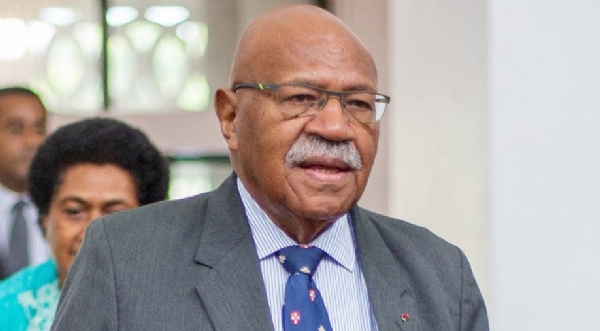NB Explains | Why Fiji PM apologized for the 1987 military coup ahead of summit with PM Modi?
What is the 1987 military coup that strained relations of Fiji with India
Total Views |
Suva, May 15: In a significant development, Fiji's Prime Minister Sitiveni Rabuka on Sunday apologised to the Indo-Fijian community for the coup of 1987. Rabuka made the confession at the Reconciliation Service between the Methodist Church and the Girmitiyas in Suva held at the Vodafone Arena and has asked for forgiveness.

What did he say?
In his apology, Rabuka expressed his regret for the actions taken in the coup, stating, "I make this confession on my own behalf and on behalf of all those who took part with me in the military coup on the 14th of May, 1987. We confess our wrongdoings, and we confess that we have hurt so many of our people in Fiji, particularly those of the Indo-Fijian community."
I make this confession on my own behalf and on behalf of all those who took part with me in the military coup on the 14th of May, 1987. We confess our wrongdoings, and we confess that we have hurt so many of our people in Fiji, particularly those of the Indo-Fijian community. pic.twitter.com/eNI83zu86F
— Sitiveni Rabuka (@slrabuka) May 14, 2023
"I admit our wrongdoings, you have every right to blame us for the difficulties you went through, we do not blame you for being angry with us or even hate us, you are justified in your anger and your hate. I stand here to confess and to ask for your forgiveness," tweeted Rabuka.
What is the 1987 military coup?
Fiji, where ethnic Indians were in a majority until the aftermath of a military coup in 1987 forced tens of thousands of them to leave the country of 330 islands. Staged by Rabuka, it overthrew the elected government of Prime Minister Timoci Bavadra, who was the country's first ethnic Indian prime minister.
Concerns were raised among some indigenous Fijians that the government was becoming too closely aligned with the Indian community. Notably the Indian community in Fiji made up a significant portion of Fiji's population and held considerable economic power.
Rabuka, who was then a Lieutenant Colonel in the Fijian military, declared himself head of the military government and suspended the country's constitution. He established an interim government made up entirely of indigenous Fijians.
It was a significant chapter in Fiji's history as it led to significant political instability in the country, as well as strained relations with India and other countries.
Now, Rabuka admits that they have wronged Fijians, particularly the Indo-Fijian community and their sons and daughters, forcing some to leave our shores for a better living.
Apology ahead of India-Pacific Island summit
Rabuka's apology comes ahead of the India-Pacific Island summit. Prime Minister Narendra Modi is expected to address the India-Pacific Islands Cooperation (FIPIC) summit and announce a number of initiatives aimed at deepening India's engagement with the Pacific Islands.
He will attend the FIPIC summit in Papua New Guinea on May 21-22. The apology by Rabuka is seen as a significant step towards reconciliation between the indigenous Fijian and Indian communities.
The summit is being attended by leaders from 14 Pacific Island countries and is seen as an important opportunity for India to strengthen its ties with the region.
Alarmed by the inroads China is making into Oceania, US President Joe Biden hosted the first-ever summit with 12 Pacific Island nations in Washington in September. After the summit, the Biden administration is in overdrive in that region.
India-Fiji relations
However, PM Modi's visited Fiji within six months of assumption of office in his first term as Prime Minister. It was a bold step. It ended a freeze in high-level visits since Rabuka overthrew the islands' democratically elected government, which provided a conducive environment for Fiji Indians to live in peace in the country.
For India, developments in Fiji, where the erstwhile anti-Indian coup leader Sitiveni Rabuka was elected PM on Christmas eve, present a stream of ironies and dilemmas. Following Rabuka's election, replacing his Beijing-leaning predecessor, Frank Bainimarama, Fiji will be the ground zero for China-US rivalry in Oceania in the coming months.

